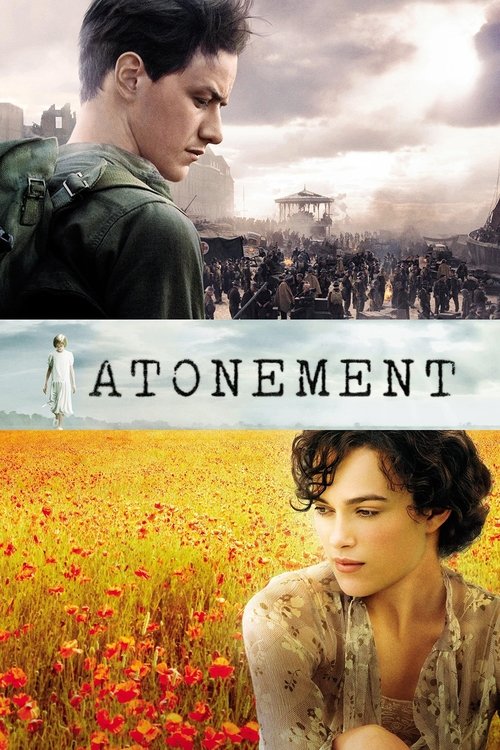
Title: Atonement
Year: 2007
Director: Joe Wright
Writer: Christopher Hampton
Cast: James McAvoy (Robbie Turner), Keira Knightley (Cecilia Tallis), Saoirse Ronan (Briony Tallis (Age 13)), Romola Garai (Briony Tallis (Age 18)), Vanessa Redgrave (Briony Tallis (Age 77)),
Runtime: 123 min.
Synopsis: As a 13-year-old, fledgling writer Briony Tallis irrevocably changes the course of several lives when she accuses her older sister's lover of a crime he did not commit.
Rating: 7.6/10